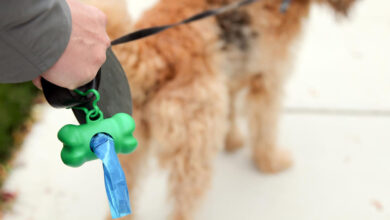The Unexpected Consequences of Neutering: Uncovering the Reasons Behind Your Dog’s Lack of Peeing

1. Introduction
Neutering is a common procedure done to dogs to reduce their reproductive capabilities. It is often done for health and behavioral reasons, as well as to reduce pet overpopulation. However, after neutering, some dogs may experience difficulty urinating. This article will discuss why your dog may not be peeing after neutering and what you can do about it.
2. What is Neutering?
Neutering is the process of surgically removing the reproductive organs from male or female animals. In male dogs, this procedure is referred to as castration or “fixing”, while in female dogs it is referred to as spaying or “de-sexing”. The purpose of neutering is to prevent reproduction and reduce pet overpopulation. It also has other benefits such as reducing aggression in males and preventing certain types of cancer in females.
3. The Impact of Neutering on Dog’s Urinary Habits
When a male dog is neutered, his testosterone levels decrease significantly which can lead to changes in his urinary habits. He may urinate more frequently than before and have difficulty controlling his bladder when excited or stressed out due to decreased hormone levels that help with bladder control. Additionally, the lower testosterone levels may cause the prostate gland to shrink which could make it difficult for him to completely empty his bladder when he goes to pee.
4. Reasons for a Dog Not Peeing After Neutering
There are several possible reasons why your dog may not be peeing after neutering:
• He may be too sore from the surgery and not want to move around much;
• He may have an infection or inflammation in his urinary tract;
• He may be suffering from stress due to the change in environment;
• He may be suffering from an obstruction in his urethra; or
• He may have a medical condition such as diabetes that affects his ability to urinate normally.
5. Signs of Urinary Tract Infection in Dogs
If your dog has a urinary tract infection (UTI), he will likely show signs such as frequent urination, straining while trying to urinate, blood in the urine, foul smelling urine, cloudy urine, and/or licking around the genital area excessively. If you suspect that your dog has a UTI then you should take him to the vet for diagnosis and treatment right away before it becomes more serious or causes further complications down the road such as kidney damage or even death if left untreated for too long.
6. Diagnosing and Treating Urinary Tract Infections in Dogs
Your vet will likely perform a physical exam on your dog along with some diagnostic tests such as urine analysis or blood work depending on what they suspect is causing the problem with your pet’s urinary habits after neutering.If they do diagnose him with a UTI then they will likely prescribe antibiotics for treatment.It is important that you follow all instructions given by your veterinarian regarding dosage amounts and length of treatment.
7. When to Contact the Vet?
If you notice any signs of illness or discomfort related to your pet’s urinary habits after neutering then you should contact your vet right away.Additionally,if there has been any change in frequency,amount,color,smell,etc.then it would also be wise to consult with your vet just so they can rule out any underlying medical issues causing these changes.
8 How To Help Your Dog Urinate After Neutering?
There are several things that you can do at home that may help encourage urination including: providing plenty of fresh water throughout the day; offering high-moisture food; providing access to outdoor areas where he can go potty ; scheduling regular walks ; providing soft bedding ; playing calming music ; using pheromone sprays; offering belly rubs ; providing treats ; using belly wraps ; offering massage therapy ; providing distraction toys ; using warm compresses; avoiding sudden loud noises ; avoiding physical contact if he seems uncomfortable.These strategies can help relax him so he feels comfortable enought o go potty without feeling scared or anxious.


